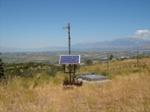Lower emissions, less noise, more quality of life – all good reasons to turn to electricity where mobility is concerned. If the EU has its way, we will all be driving only electric cars in the major cities of Europe by the year 2050. A beautiful goal, but experts are going even further than that: citizens can forego a car of their own and share electric vehicles.
The Ryland Group Inc. will pay a civil penalty of $625,000 to resolve alleged Clean Water Act violations at its construction sites.
Scientists are reporting that household washing machines seem to be a major source of so-called "microplastic" pollution that they now have detected on ocean shorelines worldwide.
A bi-partisan, geographically diverse group of twenty-six state Attorneys General joined forest owners and industry groups in filing briefs asking the U.S. Supreme Court to reverse the 9th Circuit Court of Appeals' ruling that rainwater runoff from forest roads used for timber harvest is a "point source" of water pollution under the Clean Water Act.
Natural gas mining has drawn fire recently after claims that hydraulic fracturing, an increasingly popular technique for tapping hard-to-reach reservoirs, contaminates groundwater. Surface lakes, rivers and streams may also be at risk.

New research has found that hurricane activity is 'clustered' rather than random, which has important long-term implications for coastal ecosystems and human population. The research was carried out by Professor Peter Mumby from The University of Queensland Global Change Institute and School of Biological Sciences, Professor David Stephenson and Dr. Renato Vitolo (Willis Research Fellow) at the University of Exeter's Exeter Climate Systems research centre.
Scientists from the University of Gothenburg, Sweden, have launched a tool that uses the actual conditions to determine the maximum possible magnitude of solar incidence - in a whole town, a neighbourhood, or a particular roof.
Rivers and streams in the United States are releasing enough carbon into the atmosphere to fuel 3.4 million car trips to the moon, according to Yale researchers in Nature Geoscience. Their findings could change the way scientists model the movement of carbon between land, water and the atmosphere.
It is becoming more and more common to install solar panels on roofs in order to obtain green electricity, but not all roofs are equally suitable.
This year marks 25 years since the passage of the federal Emergency Planning and Community Right-to-Know Act (EPCRA). The act was passed in 1986 as a part of the reauthorization for Superfund. EPCRA has played a significant role in protecting people’s health and the environment by providing communities and emergency planners with area-specific information on toxic chemical releases.

Scientists for the first time have identified and mapped the chemical structure of molecules used by certain species of marine seaweed to kill or inhibit the growth of reef-building coral. Chemicals found on the surfaces of several species of seaweed have been shown to harm coral, suggesting that competition with these macroalgae could be a factor in the worldwide decline – and lack of recovery – of coral reefs.
Students at the University of Washington have teamed up on a startup that promises to turn slash piles of forest refuse into biochar, a crumbly charcoal-like product for farmers that helps their soil hold water and nutrients. Biochar is not technically a fertilizer, but often improves yield for farmers.
For a long time, ecologists have believed—and others accepted—that when it comes to whether a land mass is covered with forests or grasslands, climate controls the show. They thought that the amount of rain, temperature and frequency of wildfires determine whether the ground will be covered with trees or grasses.

Over the years, there has been a steady stream of new technologies introduced into the water/wastewater market in an effort to streamline communication networks for SCADA applications.
Pesticides are a bigger problem than had long been assumed. This is the conclusion of a study in which scientists analysed data on 500 organic substances in the basins of four major European rivers. It was revealed that 38 percent of these chemicals are present in concentrations which could potentially have an effect on organisms.
Molecular Solar Ltd has achieved a significant breakthrough in the performance of solar photovoltaic cells.
Recently, the nation's largest professional organization of biologists and biological science organizations sent a letter to members of the Joint Select Committee on Deficit Reduction urging lawmakers to use great caution in considering any proposals that would cut federal investments in scientific research and education.
In "Fraunhofer's System Research for Electromobility" researchers are coming up with solutions for tomorrow's mobility.
Scientists at the University of California, Riverside's Center for Environmental Research and Technology have received a $2 million contract for a first-of-its-kind study of hybrid construction vehicles.

Shoppers don't usually give a second thought as they reach into a cooler to grab milk, cheese or prepackaged lunches. Open-front refrigerated display cases, which make up roughly 60 percent of the refrigerated cases in grocery stores and supermarkets, provide quick access to chilled products such as dairy, meat, fish and produce.